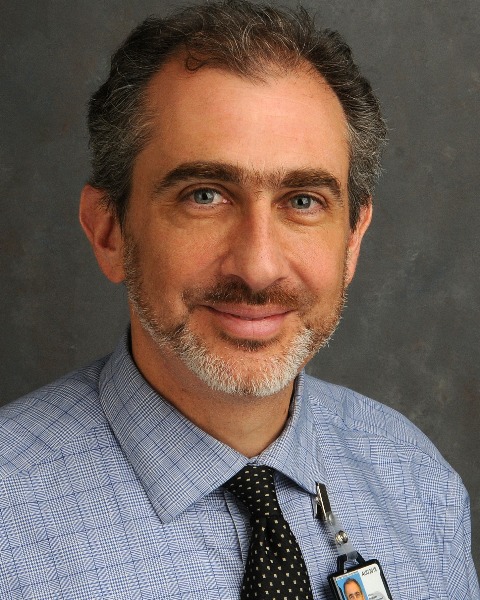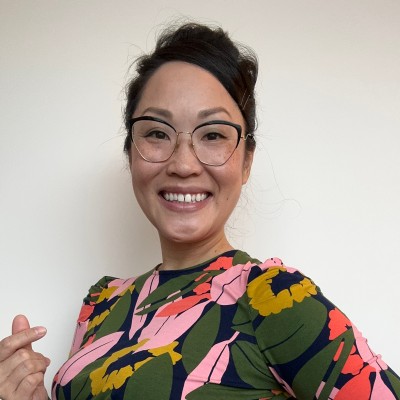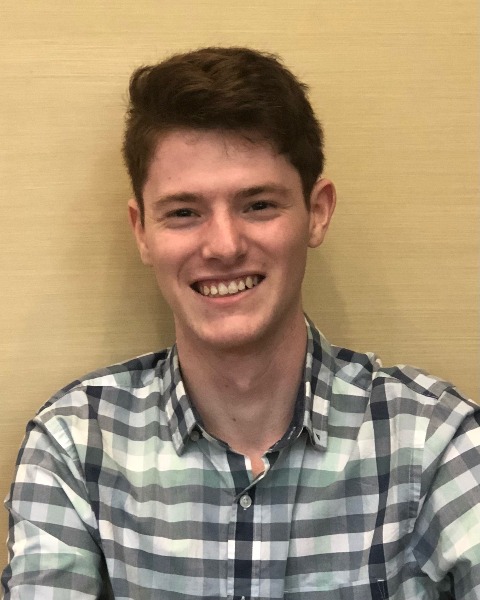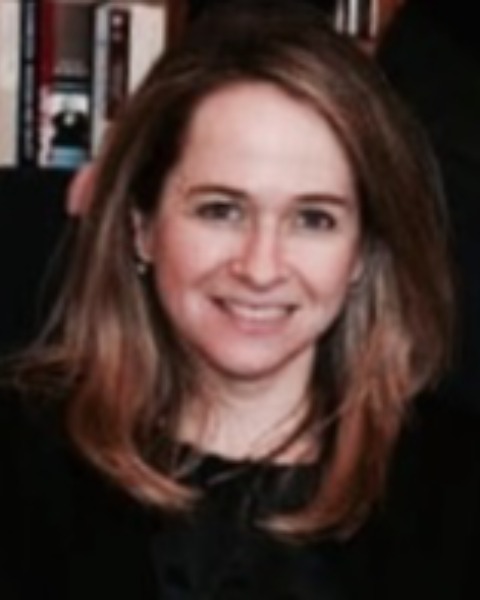Improving Opioid and Substance Use Disorder Care Quality Among Nursing Home Residents
1.25 CME / 1.25 CMD Clinical / 1.25 MOC
We will present five papers related to COVID-19 complications (e.g. dehydration, delirium, symptom development) in nursing home patients. Paper #1 discusses the frequency of COVID-19 symptoms and the co-occurrence of delirium and dehydration in 314 COVID-19 patients. Paper #2 discusses how delirium presents post-vaccination via a 40-patient case series. Paper #3 describes the amount of therapy patients received and the associations between delirium/dehydration and rehabilitation tolerance. Paper #4 explains how staff can predict dehydration risk based on patients’ prior functional status and how to mitigate this risk. Paper #5 discusses the individual- and systems-level barriers the 122 post-acute patients faced during discharge. The discussant will then synthesize the papers and moderate a Q&A.
Learning Objectives:
- Recognize COVID-19-related and post-vaccination delirium in patients with COVID-19 and who have been vaccinated for COVID-19.
- Understand the potential impact of COVID-19-related delirium and dehydration on the rehabilitation process, and be able to make informed decisions as to the appropriate level of rehabilitation for a COVID-19 patient with these sequelae.
- Identify which patients who contract COVID-19 are at increased risk for dehydration and delirium and take actions to mitigate this risk.
- Take concrete steps to overcoming the barriers to coordinating care to expedite safe discharge in post-acute patients with COVID-19 on both individual patient and systemic levels.
Presenters:
 Kenneth Boockvar, MD, MS, is the Director of the Division of Gerontology, Geriatrics, and Palliative Care, and Gwen McWhorter Professor in Geriatric Medicine at University of Alabama at Birmingham (UAB) School of Medicine. He studies health care delivery for older adults, including patient transitions between sites of care, medication safety, and delirium in long-term care. He is a primary care geriatrician, as well as grant recipient from VA’s Health Services Research and Development service, the National Institute on Aging, and private foundations.
Kenneth Boockvar, MD, MS, is the Director of the Division of Gerontology, Geriatrics, and Palliative Care, and Gwen McWhorter Professor in Geriatric Medicine at University of Alabama at Birmingham (UAB) School of Medicine. He studies health care delivery for older adults, including patient transitions between sites of care, medication safety, and delirium in long-term care. He is a primary care geriatrician, as well as grant recipient from VA’s Health Services Research and Development service, the National Institute on Aging, and private foundations.
 Wingyun Mak, PhD, is a Geropsychologist at The New Jewish Home Research Institute on Aging and an Assistant Clinical Professor in the Department of Geriatrics and Palliative Medicine at the Icahn School of Medicine at Mount Sinai. Dr. Mak conducts research to understand and promote psychological well-being in older adults with dementia. During the COVID-19 pandemic, she collaborated with an interdisciplinary team to examine various COVID-19-related complications that affected nursing home residents.
Wingyun Mak, PhD, is a Geropsychologist at The New Jewish Home Research Institute on Aging and an Assistant Clinical Professor in the Department of Geriatrics and Palliative Medicine at the Icahn School of Medicine at Mount Sinai. Dr. Mak conducts research to understand and promote psychological well-being in older adults with dementia. During the COVID-19 pandemic, she collaborated with an interdisciplinary team to examine various COVID-19-related complications that affected nursing home residents.
 Himali Weerahandi, MD, MPH, is an assistant professor in the Division of Hospital Medicine within the Department of Medicine at UCSF. Her areas of expertise include transitions across the continuum of care, care coordination, readmissions, and discharge practices. She is the principal investigator of a National Institutes of Health K23 Career Development Award examining discharge process quality from skilled nursing facility to home after a heart failure hospitalization. She is also examining how frailty and cognitive impairment drive outcomes in these patients in order to design best practices for this vulnerable group.
Himali Weerahandi, MD, MPH, is an assistant professor in the Division of Hospital Medicine within the Department of Medicine at UCSF. Her areas of expertise include transitions across the continuum of care, care coordination, readmissions, and discharge practices. She is the principal investigator of a National Institutes of Health K23 Career Development Award examining discharge process quality from skilled nursing facility to home after a heart failure hospitalization. She is also examining how frailty and cognitive impairment drive outcomes in these patients in order to design best practices for this vulnerable group.
 Benjamin Canter, BA, OT/s, is an occupational therapy doctoral student at Boston University and a Research Associate at the Center for Healthcare Organization & Implementation Research (CHIOR) in the VA Boston Healthcare system. His research interests include COVID-19 rehabilitation, dehydration prevention, and goals of care. He serves as a member of multiple AMDA committees, including the Transitions of Care, Annual Conference Planning, and Futures Program subcommittees.
Benjamin Canter, BA, OT/s, is an occupational therapy doctoral student at Boston University and a Research Associate at the Center for Healthcare Organization & Implementation Research (CHIOR) in the VA Boston Healthcare system. His research interests include COVID-19 rehabilitation, dehydration prevention, and goals of care. He serves as a member of multiple AMDA committees, including the Transitions of Care, Annual Conference Planning, and Futures Program subcommittees.
 Ruth Spinner, MD, is the Senior Medical Director at The New Jewish Home, and is an Assistant Clinical Professor in the Department of Geriatrics and Palliative Medicine at the Icahn School of Medicine at Mount Sinai. She is board certified in Internal Medicine and in Geriatrics, and is a Certified Medical Director of the American Board of Post Acute and Long Term Care. She is involved in clinical and quality improvement programs, as well as medical education for student and fellow trainees, and is the current Chair of the Education Committee of the Society for Post Acute and Long Term Care Medicine.
Ruth Spinner, MD, is the Senior Medical Director at The New Jewish Home, and is an Assistant Clinical Professor in the Department of Geriatrics and Palliative Medicine at the Icahn School of Medicine at Mount Sinai. She is board certified in Internal Medicine and in Geriatrics, and is a Certified Medical Director of the American Board of Post Acute and Long Term Care. She is involved in clinical and quality improvement programs, as well as medical education for student and fellow trainees, and is the current Chair of the Education Committee of the Society for Post Acute and Long Term Care Medicine.
Credit Information:
Activity Created 3/2023
Credits Available Until 3/2026
- 1.25 CME
- 1.25 CMD Clinical
- 1.25 MOC
Credit Statements:
CME: AMDA – The Society for Post-Acute and Long-Term Care Medicine designates this enduring material for a maximum of 1.25 AMA PRA Category 1 Credit(s)TM. Physicians should only claim credit commensurate with the extent of their participation in the activity.
AMDA – The Society for Post-Acute and Long-Term Care Medicine for Post-Acute and Long-Term Care Medicine is accredited by the Accreditation Council for Continuing Medical Education (ACCME) to provide continuing medical education for physicians.
CMD: This self-study activity has been pre-approved by the American Board of Post-Acute and Long-Term Care Medicine (ABPLM) for a total of 1.25 clinical hour(s) toward certification or recertification as a Certified Medical Director (CMD) in post-acute and long-term care medicine. The CMD program is administered by the ABPLM. Each physician should claim only those hours of credit actually spent on the activity.
ABIM Maintenance of Certification (MOC): Successful completion of this CME activity, which includes participation in the evaluation component, enables the participant to earn up to 1.25 Medical Knowledge MOC points and patient safety credit in the American Board of Internal Medicine’s (ABIM) Maintenance of Certification (MOC) program.
Participants will earn MOC points equivalent to the amount of CME credits claimed for the activity. It is the CME activity provider’s responsibility to submit participant completion information to ACCME for the purpose of granting ABIM MOC credit.
Visit the Continuing Education page for information on if and how you can claim credit/hours for AMDA’s education.
Disclosure Information:
The Society requires the disclosure of all speaker/faculty/planner’s relevant financial relationships; presence of off-label use of a device or medication; and discussion of any experimental, new or evolving topic prior to each accredited education activity.
If the learner perceives any bias toward a commercial product or service, advocation of unscientific approaches to diagnosis or therapy, or recommendation, treatment, or manners of practicing healthcare that are determined to have risks or dangers that outweigh the benefits or are known to be ineffective in the treatment of patients please report this to the Society’s staff.
- Julie Gammack, MD, CMD (Planner & Speaker): Stockholder: Amarin
- Kenya Rivas Velasquez, MD, CMD, FAAFP (Planner & Speaker): OptumRx: Stockholder
- All other planners, speakers, and AMDA staff have no relationships with ineligible companies.
All relevant financial relationships have been identified and mitigated.